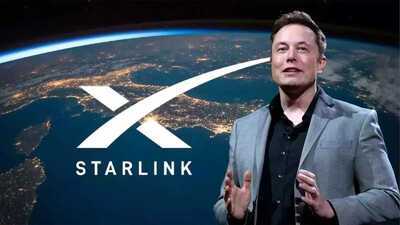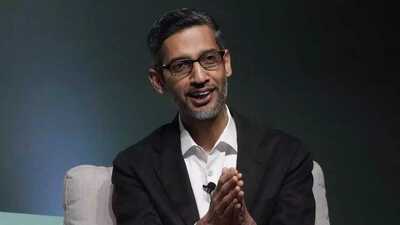The H-1B visa, introduced by the United States in 1990, has long been a pathway for highly skilled professionals from across the globe to contribute to America’s technology sector. Many of today’s tech leaders, including Elon Musk, Sundar Pichai, and Satya Nadella, entered the US through this programme, allowing them to innovate, lead companies, and create global impact. These visas have been instrumental in building Silicon Valley and advancing AI, cloud computing, and consumer technology. With the recent $100,000 fee imposed on new H-1B applicants, it’s more important than ever to recognise the pivotal role these H-1B holders have played in shaping the US tech ecosystem.
H-1B visa holders leading the US’s top companies
Elon Musk
Musk initially entered the US on a J-1 exchange visa and later obtained an H-1B to pursue academic training and business ventures. He has been central to the success of SpaceX, Tesla, Neuralink, and X Corp, employing thousands of engineers and professionals globally. Musk credits the H-1B programme for enabling him and other highly talented individuals to create groundbreaking technologies, from reusable rockets to mass-market electric vehicles. His advocacy for skilled immigration highlights the importance of global talent in driving innovation and maintaining America’s leadership in tech.

Sundar Pichai
Pichai came to the US as an international student before transitioning to an H-1B visa, which allowed him to join Google in product management roles. Over the years, he rose to become CEO of Alphabet, overseeing key innovations in AI, Google Cloud, and hardware like Pixel phones and Nest devices. Pichai’s leadership has guided Google through major technological shifts, expanding AI research, cloud services, and consumer applications, positioning Google as a global technology leader.

Satya Nadella
Nadella moved to the US in the early 1990s and obtained an H-1B visa to work at Microsoft. Rising through the ranks, he became CEO in 2014, leading Microsoft’s transformation through cloud computing, AI, and enterprise solutions. Nadella emphasises the critical role of skilled immigrants in fostering innovation and growth, highlighting that many of Microsoft’s most transformative projects have been driven by talent brought to the US through H-1B.

Aravind Srinivas
Srinivas arrived in the US as a student and leveraged his H-1B visa to work in AI research. He later founded Perplexity AI, a company valued at $9 billion, offering cutting-edge AI solutions globally. His journey highlights the link between skilled immigration and leadership in next-generation technology.

Eric Yuan
Yuan, a Chinese immigrant, faced multiple visa rejections before securing his H-1B to enter the US. He founded Zoom, which became an essential tool for global communication during the COVID-19 pandemic, supporting millions of remote workers, schools, and enterprises. Yuan’s story demonstrates how H-1B visas enable entrepreneurs to build companies that have a global impact.

Jyoti Bansal
Bansal came to the US on an H-1B visa in 2000 and founded AppDynamics, a software monitoring company. AppDynamics grew rapidly and was acquired for $3.7 billion, creating significant employment opportunities and boosting the tech ecosystem. Bansal’s entrepreneurial success underscores the value H-1B holders bring to innovation and economic growth.

Impact of H-1B fee hike on US tech and economy
H-1B holders have been vital in founding, running, and scaling technology companies, filling high-skilled roles, driving innovation, and creating trillions in market value. Companies like Microsoft, Amazon, Google, Apple, and Indian-origin firms like TCS rely on these visas to access global talent that fuels growth and competitiveness in the tech industry.
The recent $100,000 fee for new H-1B applications has caused global concern, with tech leaders warning that such measures could limit access to skilled talent and slow innovation. Despite these hurdles, H-1B holders continue to demonstrate their vital role in shaping America’s technology landscape, proving that skilled immigrants remain essential to the country’s innovation and economic strength.
H-1B visa holders leading the US’s top companies
Elon Musk
Musk initially entered the US on a J-1 exchange visa and later obtained an H-1B to pursue academic training and business ventures. He has been central to the success of SpaceX, Tesla, Neuralink, and X Corp, employing thousands of engineers and professionals globally. Musk credits the H-1B programme for enabling him and other highly talented individuals to create groundbreaking technologies, from reusable rockets to mass-market electric vehicles. His advocacy for skilled immigration highlights the importance of global talent in driving innovation and maintaining America’s leadership in tech.
Sundar Pichai
Pichai came to the US as an international student before transitioning to an H-1B visa, which allowed him to join Google in product management roles. Over the years, he rose to become CEO of Alphabet, overseeing key innovations in AI, Google Cloud, and hardware like Pixel phones and Nest devices. Pichai’s leadership has guided Google through major technological shifts, expanding AI research, cloud services, and consumer applications, positioning Google as a global technology leader.
Satya Nadella
Nadella moved to the US in the early 1990s and obtained an H-1B visa to work at Microsoft. Rising through the ranks, he became CEO in 2014, leading Microsoft’s transformation through cloud computing, AI, and enterprise solutions. Nadella emphasises the critical role of skilled immigrants in fostering innovation and growth, highlighting that many of Microsoft’s most transformative projects have been driven by talent brought to the US through H-1B.

Aravind Srinivas
Srinivas arrived in the US as a student and leveraged his H-1B visa to work in AI research. He later founded Perplexity AI, a company valued at $9 billion, offering cutting-edge AI solutions globally. His journey highlights the link between skilled immigration and leadership in next-generation technology.

Eric Yuan
Yuan, a Chinese immigrant, faced multiple visa rejections before securing his H-1B to enter the US. He founded Zoom, which became an essential tool for global communication during the COVID-19 pandemic, supporting millions of remote workers, schools, and enterprises. Yuan’s story demonstrates how H-1B visas enable entrepreneurs to build companies that have a global impact.
Jyoti Bansal
Bansal came to the US on an H-1B visa in 2000 and founded AppDynamics, a software monitoring company. AppDynamics grew rapidly and was acquired for $3.7 billion, creating significant employment opportunities and boosting the tech ecosystem. Bansal’s entrepreneurial success underscores the value H-1B holders bring to innovation and economic growth.

Impact of H-1B fee hike on US tech and economy
H-1B holders have been vital in founding, running, and scaling technology companies, filling high-skilled roles, driving innovation, and creating trillions in market value. Companies like Microsoft, Amazon, Google, Apple, and Indian-origin firms like TCS rely on these visas to access global talent that fuels growth and competitiveness in the tech industry.
The recent $100,000 fee for new H-1B applications has caused global concern, with tech leaders warning that such measures could limit access to skilled talent and slow innovation. Despite these hurdles, H-1B holders continue to demonstrate their vital role in shaping America’s technology landscape, proving that skilled immigrants remain essential to the country’s innovation and economic strength.
You may also like

Ballon d'Or 2025 winner 'leaked' hours before lavish Paris awards ceremony

GST 2.0 Shopping Festival: Where to Complain If Retailers Don't Pass on GST Rate Cuts

Hurricane Gabrielle set to smash UK as weather map turns purple

Farmers of Muzaffarpur to receive immediate benefits of govt schemes through single window

Mumbai to introduce pod taxi services for last-mile connectivity: Maha CM







